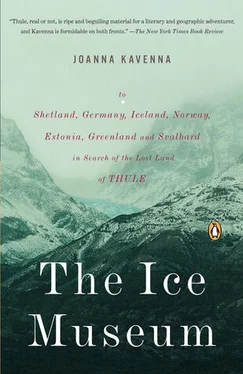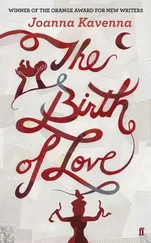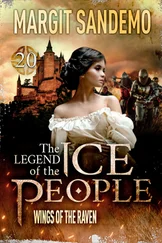Gunvor was born, she told me, in December 1943. Her Norwegian mother had been working as a waitress in the army barracks where the German soldiers lived. Her father was an officer; that was all Gunvor knew. Her mother, she thought, had entered a Lebensborn home and had given birth to Gunvor. But a year after she was born, her father had left Norway.
‘I never knew him. My mother never spoke about him, except once, and briefly. She married shortly after the war ended, to a man who didn’t mind me. He died when I was ten. They had two other children, who never liked me very much because I was so unpopular at school.’ She tried to laugh. ‘You know how children are, when someone is called names, they don’t want to be their friend. But we made things up years later. My mother and my stepfather are now dead. I never tried to trace my father, probably now he is dead too,’ Gunvor said. ‘Even my generation is now old.’ She paused, and she motioned towards a plate of dry Norwegian cakes and a pot of coffee.
‘Some of the krigsbarn did try to trace their fathers,’ she said. ‘I heard such stories later, I was glad in a way that I never knew mine. Friends of mine, people I have met through the krigsbarn networks and societies, told me that they went to find their fathers in Germany, and when they tracked them down, their fathers were so horrified to see them. By then, they had wives, they had other children; they didn’t want to remember. There was one woman, she is an amazing woman, she went to Germany and her father knew all about her, but he told her to go away; he said that he wanted nothing to do with her. She was so angry, and she had all the proof, from her mother, so she took him to court. He was old and weak, and in the end he tried to stop the court proceedings; he was embarrassed, most probably, and he offered her money, he tried to apologize to her. By then she didn’t care. She proved in court that he was her father, and then she left Germany and never spoke to him again.’
It sounded like a hollow victory, but Gunvor was consoled by it.
‘Mostly people don’t want to remember us,’ Gunvor said. ‘There were many people after the war who wanted us sent out of Norway, to Germany, where they said we belonged or to Australia, just to get rid of us. We were a horrible memory of all the compromises people made with the Germans, of the ways people made such mistakes during the war.’
Gunvor’s face creased when she spoke, and her fingers moved nervously on her coffee cup. I had found her through a krigsbarn support group. She had responded politely to my call. But still, she hardly enjoyed talking about the past. The past had made her shy and suspicious. Gunvor’s house was immaculately pink, cluttered with ornaments, but there were absences. There were no family photographs on her mantelpiece. Her curtains were drawn, though it was mid-afternoon.
‘I was wondering,’ I said, ‘if you wished you had found your father. ’
‘It’s better this way,’ she said. ‘For years I was very unhappy about it, not knowing him, I longed just to know a little about him. But whenever I said something to my mother, her face just closed up, she wouldn’t speak. And now, I think I am glad. This way, I can imagine my father was a reluctant soldier, that he never believed in the aims of the Nazis. I can imagine he was a nice man, a kind man. My mother never said so, and he never took any interest in her. He must have known there was a child, but I don’t know for certain.’
She was wilfully incurious, trusting to her imagined reality, her consolatory reconstruction of events. It was hardly surprising; the krigsbarn had a terrible time after the war. In the Aryan Empire they had been the ideal racial group; under Himmler’s schemes the children of the Lebensborn programme in Norway were central to the project of the Third Reich. But after the defeat of Germany, the ideal progeny of the Aryan Empire suffered an immediate change in status. In post-war Norway, a virulent Germanophobia spread, and the krigsbarn and their mothers supplied an uncomfortable reminder of a period the Norwegians hoped to forget.
‘Thousands of the mothers were put in prison, and their children were taken away,’ said Gunvor. ‘In Norway the top psychiatrists, such as the head of the largest mental hospital, said that the mothers had been insane, mentally defective, because they had slept with the Germans. So the krigsbarn were thought of as insane too; they were thought to be mentally ill because of their background. So they were treated like lunatics.’
Spurious medical conclusions, founded on notions of genetic taint, led to decades of maltreatment and neglect. The krigsbarn stayed in Norway, but many of them were shunned, hidden in children’s homes, or shut away in mental institutions.
‘There were Lebensborn children in Germany, Holland, France, in the Channel Islands, in Belgium, Denmark, as well as in Norway. We have networks,’ said Gunvor, sadly. ‘We think the Norwegian authorities concealed the abuse, or turned away. They didn’t care.’
‘What would you like to happen?’ I asked. ‘What would make things better?’
‘For many people, it is too late. Their lives have already been ruined. There have been cases fought, for compensation, against the Norwegian authorities. We feel that a lot of people were deprived of an education and therefore could not work to gain money. So really they lost potential earnings, because of this abuse, aside from all the other terrible things that happened that you can’t put a price on. But even if we got compensation, well, I don’t care. It wouldn’t help me. You see my house’—and she cast a careless hand at her pink room—‘I am not poor. It is something else that I feel I lost.’
Gunvor rarely paused; she spilled out the story, trying to race through it, so she could return to the soft pinkness of her room, the flowers in the vase, the china ornaments cluttering the shelves. On the street outside, I imagined, people were walking dogs, cycling along the quiet streets, children were tumbling around in the park. But Gunvor’s curtains were drawn. She could only hear the muffled sounds of the afternoon, the faint voices and footsteps moving past her door.
‘I was never put away,’ said Gunvor, ‘because my mother was so determined to keep me. She was unusual. We lived a poor life together, even after she married. I don’t know . . .’ She paused, and wiped her brow. She was clearly uncomfortable, even now, even talking about the events of fifty years ago, even with her network of krigsbarn around her. ‘I don’t know. Perhaps if she hadn’t married, then things would have been much worse. She might have been bullied more; I might have been taken away. Certainly no one wanted to be her friend, for years, and my stepfather was brave to marry her. He really truly loved her. He saw she had been young, she had made a terrible mistake. There were young girls, hopelessly ignorant, who thought the German soldiers were dashing in their uniforms. I don’t understand.’
She was fumbling in a drawer, and she produced a black-and-white photograph and pushed it towards me.
‘This is me with my mother. Here I am three,’ said Gunvor. ‘It is after the war.’
The girl with the child was trying to smile for the camera. She was a pretty girl with blonde hair, dressed smartly. She looked extremely young. It was a posed photograph, an act of defiance perhaps, when the authorities were trying to pretend the war children didn’t exist. But perhaps I was reading too much into the motives of a young mother. She had loved her child, and wanted to have a photograph of her taken. Perhaps it was that simple.
Читать дальше












